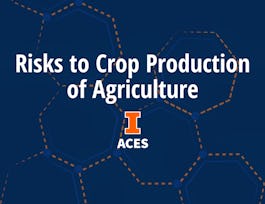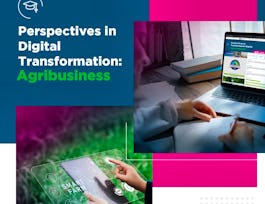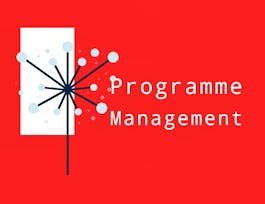Learners will examine risk management strategies for crop production, discuss techniques and programs to mitigate financial risk, and describe the types of rental agreements for agricultural land use. Learners will also explore traditional and innovative risk management strategies used in agricultural food production.



Recommended experience
What you'll learn
Strategies to mitigate risk in crop production and with agricultural land
Management techniques to mitigate financial risks of agricultural production
Traditional and innovative risk management practices of agricultural production
Skills you'll gain
Details to know

Add to your LinkedIn profile
6 assignments
See how employees at top companies are mastering in-demand skills


Earn a career certificate
Add this credential to your LinkedIn profile, resume, or CV
Share it on social media and in your performance review

There are 4 modules in this course
In the course orientation, you will become familiar with the course, your classmates, and our learning environment. The orientation will also help you obtain the technical skills required for the course. In the second part of this module, you will explore water management strategies for crop production, discuss crop production inputs and equipment decisions to mitigate risks of agricultural production, and describe pesticide and fertilizer plans for pest management.
What's included
18 videos7 readings2 assignments1 discussion prompt
At the conclusion of this module, you will describe insurance and government programs for crop production, discuss agricultural marketing strategies, and explain the various types of agricultural credit and grain storage options for producers.
What's included
7 videos7 readings1 assignment
At the conclusion of this module, you will describe the types of land rental agreements in agricultural production and describe the variables associated with owning and managing agricultural land.
What's included
6 videos3 readings1 assignment
At the conclusion of this module, you will describe traditional risk management practices of agricultural production (e.g., livestock production, off-farm employment, and government payments) and discuss innovative risk management strategies (e.g., greenhouses and agritourism). At the conclusion of this module, you will be ready to complete the final assessment for the course and earn your Coursera certificate!
What's included
10 videos8 readings2 assignments
Offered by
Recommended if you're interested in Business Strategy

University of Illinois Urbana-Champaign

Banco Interamericano de Desarrollo

Coursera Project Network

University of Illinois Urbana-Champaign
Why people choose Coursera for their career




New to Business Strategy? Start here.

Open new doors with Coursera Plus
Unlimited access to 7,000+ world-class courses, hands-on projects, and job-ready certificate programs - all included in your subscription
Advance your career with an online degree
Earn a degree from world-class universities - 100% online
Join over 3,400 global companies that choose Coursera for Business
Upskill your employees to excel in the digital economy
Frequently asked questions
Yes! Although completion of the Coursera course alone is not credit-bearing, it is a required component of a graduate-level Canvas course that can be "stacked" toward advanced credentials such as an academic (transcriptable) graduate certificate or a degree. If you decide to pursue further education, the credits you earn from this course can be applied toward a formal academic program, provided that you meet all the requirements of admission to the certificate or degree.
Access to lectures and assignments depends on your type of enrollment. If you take a course in audit mode, you will be able to see most course materials for free. To access graded assignments and to earn a Certificate, you will need to purchase the Certificate experience, during or after your audit. If you don't see the audit option:
The course may not offer an audit option. You can try a Free Trial instead, or apply for Financial Aid.
The course may offer 'Full Course, No Certificate' instead. This option lets you see all course materials, submit required assessments, and get a final grade. This also means that you will not be able to purchase a Certificate experience.
When you purchase a Certificate you get access to all course materials, including graded assignments. Upon completing the course, your electronic Certificate will be added to your Accomplishments page - from there, you can print your Certificate or add it to your LinkedIn profile. If you only want to read and view the course content, you can audit the course for free.








